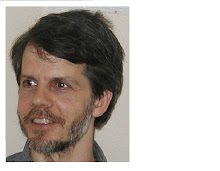Barack Obama’s snipes at Venezuela in the two presidential debates are misguided and disappointing. Venezuela is a democracy with a popularly elected president. Hugo Chaves has been reaffirmed by his people in elections and in a recall votes. He has had a hostile relationship with George W Bush, this seems justifiable considering the support of the Bush administration for the players in a coup attempt against Chaves. Whether the Bush administration was behind this attempted coup we don’t know, but the Bush administration has had considerable disdain for the Chaves government. While the Chaves government is accused of many things, its biggest fault is probably its role as a good example. Venezuela under Chaves has shared the wealth, with his people, with other struggling Latin American countries, even with poor US citizens in the form of heating oil assistance. But for all its virtues and faults Venezuela is part of a larger progressive movement in Latin America.
Most Latin American countries had been followed the Washington Consensus or neoliberalism for nearly 20 years. But this period had been one of limited growth. Then on January first1996, Mayan Indians started an insurrection in response to the North American Free Trade Agreement. And the world came to know the Zapatistas. The Zapatistas inspired and united many activists who opposed neoliberal doctrine.
The highlight of this movement was the “Battle of Seattle” in 1999 the World Trade Organization met in Seattle Washington and the streets filled with protesters of free trade policy. Of significance was the unity of environmentalists and union activists in opposing these policies. “Teamsters and sea turtles together at last” was a slogan that emerged from this historic event, the biggest demonstration of the 1990’s. Perhaps most important, these demonstrations may have helped to embolden the third world delegates to the WTO meeting to reject the terms of the industrialized nations. After Seattle the anti-globalization movement or the global justice movement began to gain momentum in the United States.
September 11th 2001 had a profound dampening effect on this movement, both inside and out. From the inside many activists shifted focus, putting out fires, trying to prevent and then opposing the wars, defending civil liberties after the passage of the patriot act.
In Latin America politics was not so constrained. During the last decade progressive governments have been elected in several Latin American countries. Their policies and place on the political spectrum vary, but reflect a leftward momentum. These countries from Venezuela to Brazil are developing a critical mass that allows for mutual support. For instance, when the Morales government of Bolivia was in crisis facing resistance and rebellion from some of the right wing governors from Bolivia’s conservative states, the Bush administration wanted to blame the problems on Morales, a socialist and the first indigenous president of Bolivia. But leaders from several Latin American nations joined together to support Morales.
So how does the Global Justice Movement and the leftward movement of Latin American governments relate to Obama? Is it possible that he is being propelled by some of the same forces that have moved Latin America to the left? Certainly Obama’s critiques of unrestricted free trade represent a divergence from neoliberalism. Directionally this is in line with the Latin American left. Obama is not (as McCain has claimed) the most liberal person in the US Senate and the Senate is not known for its ability to attract liberal politicians. Nonetheless, and in spit of his back sliding on certain issues, he still remains the most progressive presidential candidate to be nominated by a major party in at least a generation.
Is it possible that this is more than coincidental with the rise in progressive Latin American politics? The Germans say zeitgeist, it means the spirit of the times or the prevailing attitude of a period. Perhaps Obama and Venezuela are linked in this way. Venezuela could be an ally to an Obama presidency. This is not the shape of American Foreign Policy at the moment, but Barak Obama should reflect on a saying of the global justice movement, “another world is possible” this is no more than the audacity of hope.
Sunday, October 12, 2008
Subscribe to:
Post Comments (Atom)

No comments:
Post a Comment